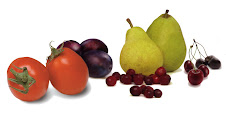 The tomatoes we use for processing are grown in the San Joaquin Valley of California. The California sun is ideal for vegetative growth and tomato plants thrive in the warm temperatures, though the fields require adequate soil moisture, which has provided quite a challenge this year. California has been in a severe water crisis and many districts were on zero allocations. Reservoirs were drawn so low last year, that we are currently 20% below normal. Recent rainfall has had a positive impact, but not enough to pull California out of the drought.
The tomatoes we use for processing are grown in the San Joaquin Valley of California. The California sun is ideal for vegetative growth and tomato plants thrive in the warm temperatures, though the fields require adequate soil moisture, which has provided quite a challenge this year. California has been in a severe water crisis and many districts were on zero allocations. Reservoirs were drawn so low last year, that we are currently 20% below normal. Recent rainfall has had a positive impact, but not enough to pull California out of the drought.Two weeks ago Congress held a hearing to assess actions by federal and state agencies responding to the emergency. Representative Devin Nunes, who was giving testimony in front of the panel, said “The solutions to this drought are clear. In the short term, we must turn the delta pumps back on and start pumping the water to the communities, water users and farmers who need it most. The long term solutions to the problems in the delta are alternative conveyance and storage” (Campbell, House committee reviews state's drought crisis)
The national news focusing on California’s issues have garnered the attention of Secretary of the Interior, Ken Salazar. Governor Arnold Schwarzenegger and Salazar have been working to come up with an economic stimulus project that would help water infrastructure in California. The Governor and Secretary Salazar announced $260 million in economic stimulus projects from the American Recovery and Reinvestment Act (Recovery Act) to help on water instrastructure, drought relief and fish restoration projects. The direct impact of the $260 million on California's farm workers has been fairly vague, but they did release a breakdown of funding for important projects.
Funding for Projects Announced April 15:
$40 million for immediate emergency drought relief in the West, focused on California. These investments will allow for the installation of groundwater wells to boost water supplies to agricultural and urban contractors, the facilitation of the delivery of Federal water to Reclamation contractors through water transfers and exchanges, and the installation of rock barriers in the Sacramento Delta to meet water quality standards during low flows;
$109.8 million to build a screened pumping plant at the Red Bluff Diversion Dam to protect fish populations while delivering water to agricultural users irrigating approximately 150,000 acres; $22.3 million to address dam safety concerns at the Folsom Dam near Sacramento, which is currently among the highest risk dams in the country for public safety;
$8.5 million to repair water-related infrastructure at Folsom Dam;
$20 million for the Contra Costa Canal to protect water supplies for 500,000 Californians and to build fish screens to restore winter-run Chinook salmon and the endangered Delta smelt;
$4.5 million to restore the Trinity River and honor the Federal government’s responsibility to the Native American Tribes;
$26 million for Battle Creek Salmon/Steelhead Restoration project, which will help restore fisheries that support thousands of jobs in northern California.
$4 million to the Bay Delta Conservation Plan for conveyance systems to move Central Valley Project and State Water Project water, habitat restoration and adaptive management;
$4 million to broaden scientific knowledge of Klamath River sedimentation for future management decision-making;
$20.7 million in smaller water infrastructure and related projects across California.
Although we face crisis today, the solutions are on the way. California farmers are optimistic that with this news of federal funding, they will receive help to maintain their fields and keep the agriculture of California afloat. With improved water conditions, tomato farmers in the San Joaquin Valley are optimistic that the overall 2009 crop will be fair to good-sized, though it is still too early to make any valid guesstimates on the overall tonnage.






